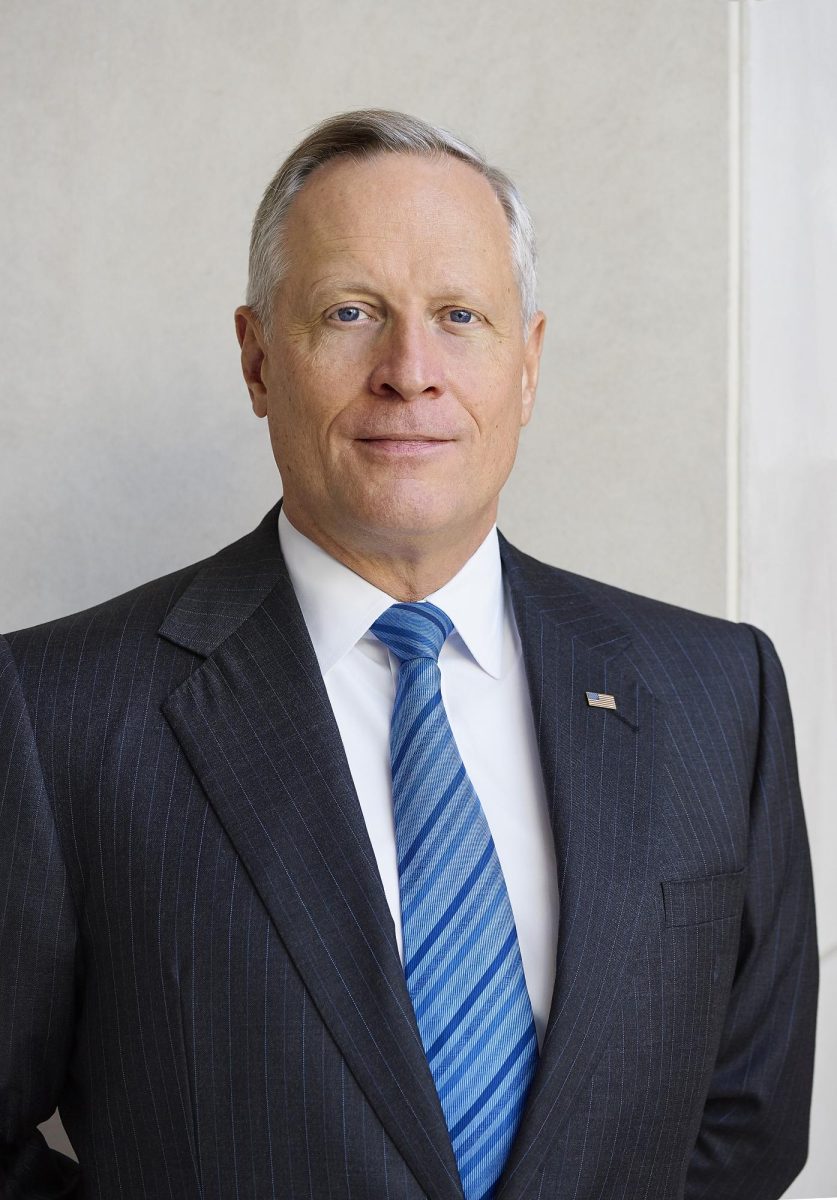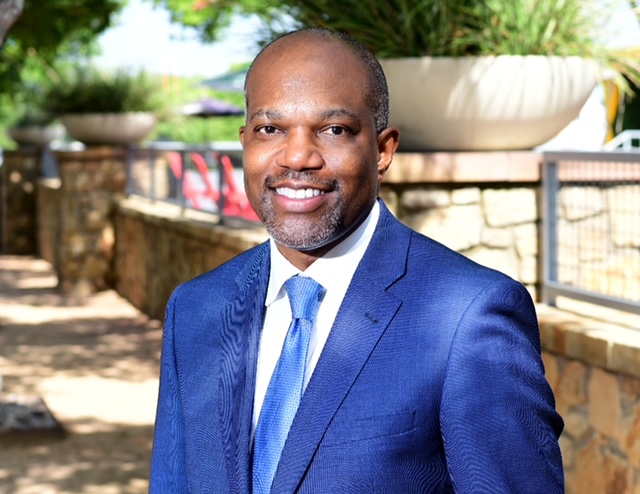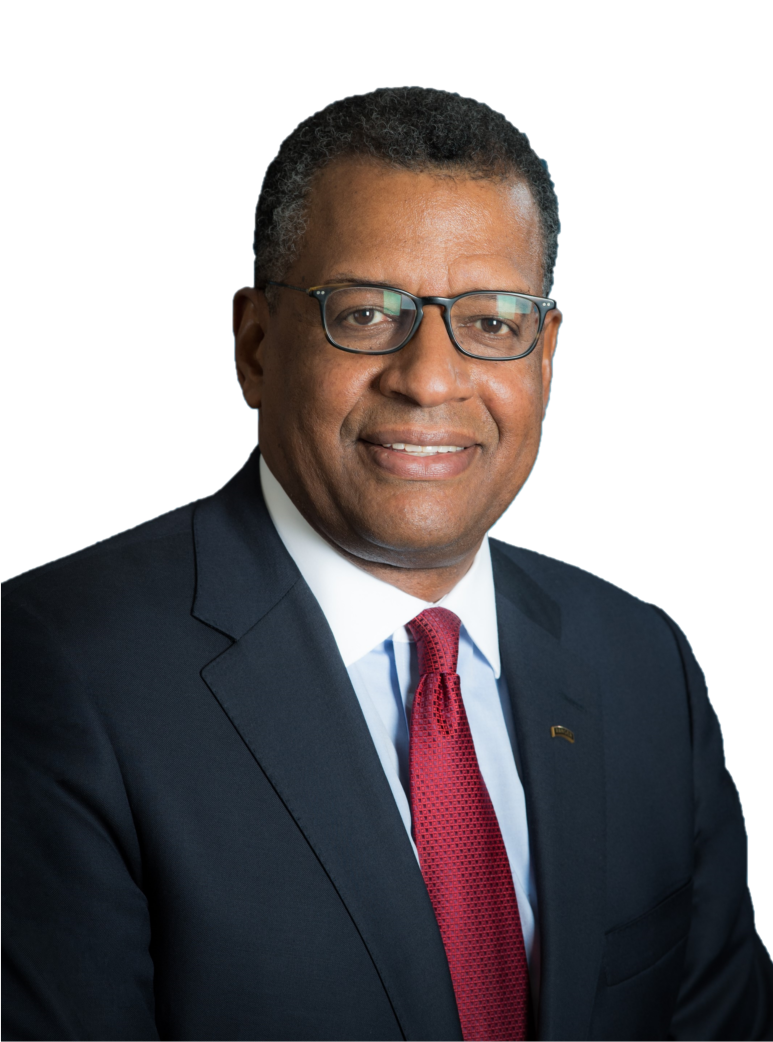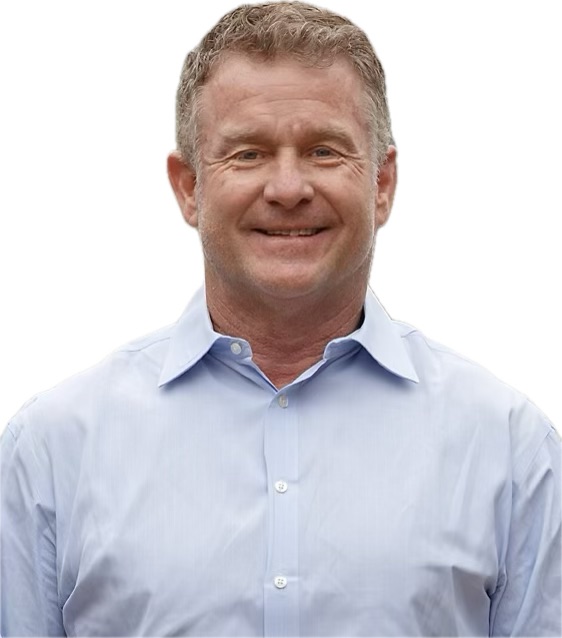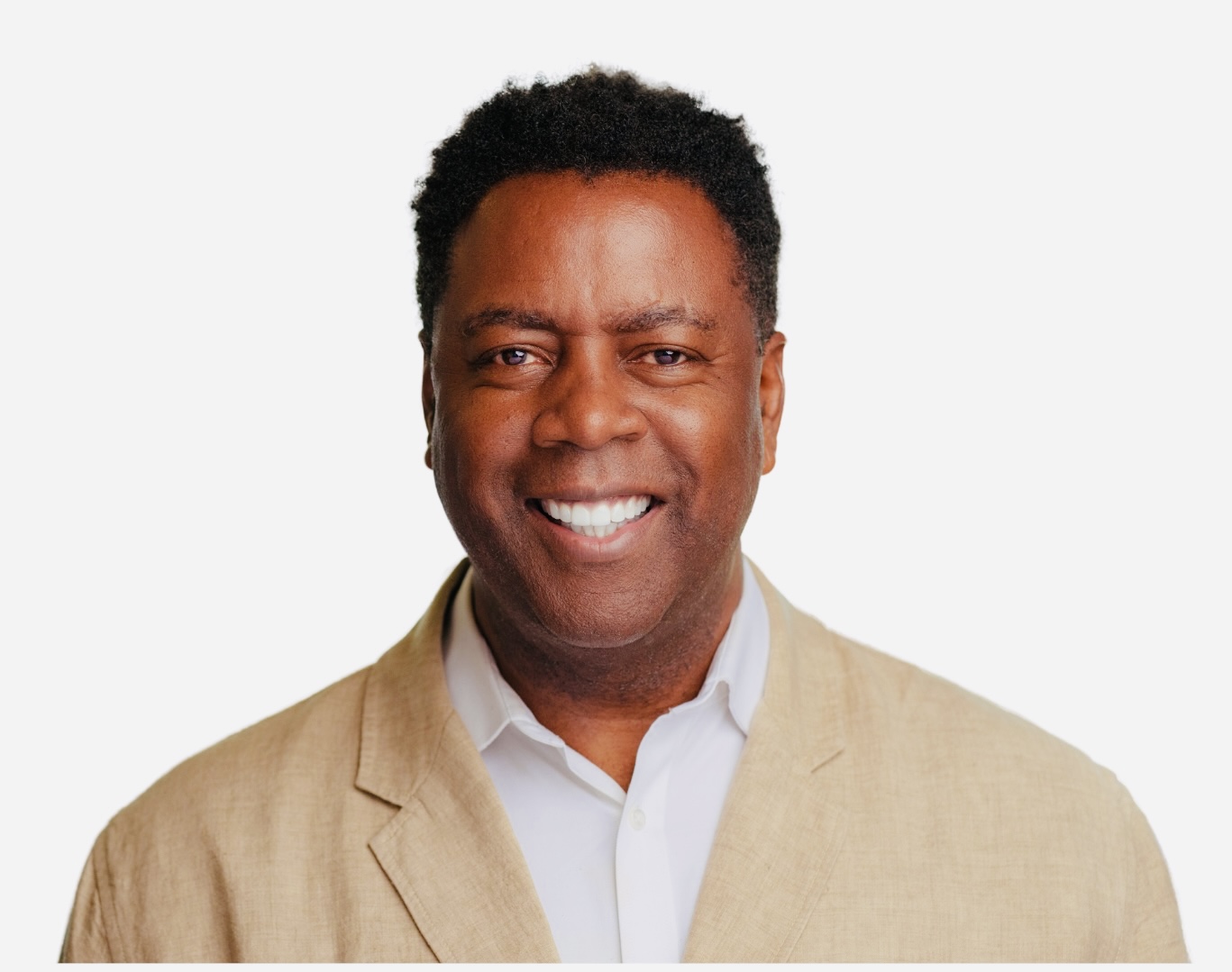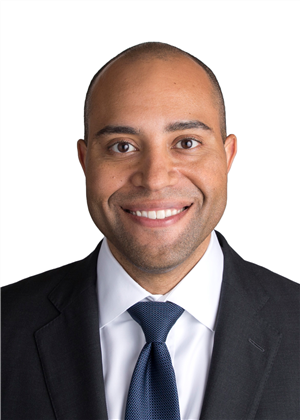Ross Perot Jr. is more than his namesake. Taking the lead from his father, Ross Perot Jr. has made his mark through hard work, integrity, and risk-taking. Ross Perot Jr. is a proud St. Mark alum, earning the Distinguished Alumnus Award in 2002. Ross Perot Jr. started his own real estate company, Hillwood, in 1988. Currently, he oversees operations of The Perot Group, which involves several business ventures in which the Perot family is involved. Additionally, Mr. Perot founded the Perot Systems Corporation. Mr. Perot serves his multiple roles with the mindset of a family leader, treating his employees as part of the family.
Lawrence Gardner:
Part of the St. Mark’s handbook says, “leaders are aware that they cannot thrive in the long run unless their communities thrive. In response leaders assume ownership for the well-being of their communities and respond to needs as they arise. Leaders are also aware that different communities have different missions.” What does servant leadership mean to you, and do you have any examples of leadership situations that you were in that resulted in change and affected the community?
Ross Perot Jr.:
We are a private company, and we are a family company, so we treat people with a family culture. Now, you have to perform and be good at what you do, but I will care for you. You’re part of our family. We will take great care of you and are concerned about your family. We’re concerned about your spouse. We’re concerned about your children. We have so many examples of what we do. We will send the plane out, pick them up, pick up the family, fly them home, and take them to the hospital. You don’t have to come to me to get permission to do that. Our leaders are all trained in what they know. They’re supposed to take care of their team. They have the authority to do it. All I ask is that when you are helping your teammates, you are also helping others.
For example, we got a call from the Marine Corps a couple of weeks ago, and they said, “We have a Marine Corps Gold Star family, and the husband was just killed in a V22 crash in Hawaii. Would you mind flying out and picking the family up in Hawaii and flying to Dover so they can be there when their husband’s body is delivered to the country? ” We said, “Sure, we’re honored to help a Gold Star family.” Our retired military pilots get to go out and help a fellow veteran and that veteran’s family. That didn’t help our team directly; Ross’s not precisely leading that effort. But what it did was we showed and allowed our team to help somebody else. That is just one example of servant leadership.
Another example happened at our operation in Iraq. I was out there with our team up in northern Iraq. One of the men in the kitchen pulled me aside and asked, “Can you help my son?” I said, “Sure, what can we do for your son?” And this son needed to have surgery. And so, within a few weeks, the son was getting surgery.
If you are going to be healthy and happy, you must be helpful. You must care for other people. We learned in Boy Scouts to always be helping other people. That is servant leadership. We have very little turnover here. My partners and I have been together for 25 and 30 years. That’s the environment that we have. A successful company is all about us being together and caring for each other.
If I set an example to take care of our team, the team’s family, and our community, I know that the team will take care of our customers. We’re in business to serve our customers.
Lawrence: What do you believe are the virtues of a good leader?
Ross Perot Jr.:
The most important thing is that you have to have integrity. If you don’t have integrity, all the rest is built on shifting shape. You want solid rock, and integrity is that rock. You hire for integrity; you look for integrity, and then once you get integrity, then capability, and then you need compassion. It would help to have all the other virtues: character, courage, and integrity. But it starts with integrity, and then you have courage. Like the Biblical verse, be quick to listen, slow to speak, slow to anger. Be a great listener; take it in.
My father always told me, “You’ve gotta be surrounded by young people because young people don’t know any better.” They don’t have enough experience. But experience can be a blinder. And then, as you get older, use your experience and wisdom, but you must have an open mind for these new ideas. So many ideas come my way. My first thought is, “Oh, that is stupid. It won’t work, but then I better be careful because 40 years ago, someone told me that was stupid, it wouldn’t work, and you made it happen. So be open-minded. Don’t be the guy who follows the herd. Set your path as a leader.
Lawrence:
The definition of a marksman that we have in the Character Leadership Handbook is “a current student or alumnus who embodies in word and action the school’s mission. A scholar, he advances toward mastery and the chief disciplines of the arts, sciences and languages. He is an athlete; he thrives on competition and demands that his body express the virtues of his spirit. A leader, he understands his own identity, success and happiness as being inseparable from that of the communities of which he’s apart, and strives to move as communities forward in their missions. Based on this working different definition, how have these experiences helped you lead your organization to success and uplift those around you?
Ross Perot Jr.:
You need to keep humility at the center and as a marksman. With the gifts we were given to go to Saint Mark’s, you got to keep capability there. It’s a huge deal. You have an incredible education. Humility is important, and inner strength is important. Always listen. You never want to take anything for granted and don’t ever become complacent. Don’t become too satisfied. You can always do it a little better. I have drive even at 65 and all the real estate projects I’ve done. You have to have that inner drive. Sometimes, others push people, and when you’re growing up, others push you. But there’s a point in life where you don’t have to push yourself. Always be grateful for what you’ve been given. I’m very thankful for what I’ve done, but in the back of my mind, I’ve got to do a little better. But as a Marksman, it’s very important to be humble.
Lawrence:
Saint Mark’s defines thriving as “living the most complete life possible to you transforming your fullest potential into actuality by understanding how the world works in your head; how to feel and respond with their heart and how to give skillful care with their hands.” How do you lead organizations with the elements of thriving?
Ross Perot, Jr:
Never be complacent. Today, I laid out five new projects for the team. Big picture, here’s what I’m thinking about. I laid out five mega deals that we are working on. I think about them, am excited about them, and love coming to work every day. As you strive, it’s so much easier to do something you love. Don’t chase money. If you pursue money and do something you don’t like, you’re not happy; your family won’t be happy. You will be the quarterback of your little team, so make sure you do something you are energized with that you really love. If you’re great at what you do, money follows. But, if you chase money, many people are still looking for more.
I’m striving, loving it, and getting better. Make sure you are excited to go to work when you wake up every morning. You have to love your job. You’ll learn you have to have a balanced life. Balance your faith, your exercise, and your diet. We all have only 24 hours in a day. The men and women who win know how to spend those 24 hours, and people who don’t win and get to the top are wasting their time. That’s all part of striving to be the best you can be.
Lawrence:
My next question concerns ethical decision-making, especially in a leadership spot where your decisions affect yourself, everyone around you, people who work for you, and their families. How do you lead ethically?
Ross Perot Jr.:
You have to have ethical leadership. It all goes back to my integrity. First of all, ethical leadership is the right thing to do. To be successful in business, the more ethical you are, the greater your integrity, and the more successful you’ll become. It all adds up. Do you want a partner that is not ethical? Do you want to hire somebody that is unethical? If you are unethical, you can get your company in trouble quickly. Leaders must have ethical leadership. To me, it’s completely black and white. Then there’s a concept of legal and illegal, then right and wrong. There are many things in this world that are legal but not right. You don’t want to get anywhere close to illegal activity, but we also don’t want you close to the wrong activity. It might be legal, but that’s not right, and we don’t want that either. It’s back to what we said earlier: how do you treat people? How do you love people? How do you show him that you are long-term?
During the last big financial crisis, we had one of our customers that would buy lots from us. They said they couldn’t buy the lots because the markets were bad, and they lost $500,000 of earnest money. They put a half million dollars down to do the deal. They couldn’t do it. Legally, the contract says it’s Ross’s money; that’s the deal. I could take the money, but I told our team and told my partner Fred, “They are great long-term partners. Times are tough.” We told them, “We will hold your money. And the next time you return to us to do a deal, we’ll give you a $500,000 credit and your money back.” That home builder returned three years later, got back on his feet, and came back to see us; he said, “Is that deal still here?” Of course, I give them the credit. They are one of our greatest customers now.
When times are good, anybody can do well, but you have got to be great when times are bad. I’m more concerned about what we’re doing in 20 years than I am right now. We do what’s right and treat others how we want to be treated. Our reputation, through the decades, illustrates our ethical leadership.
Developing relationships is essential. I created a 40-year relationship with Goldman Sachs because they partnered and invested with us. They took care of us, and when we needed something, they performed. And then, we need to build their new building in downtown Dallas. I started that relationship and have worked on that relationship, and now this shows you build relationships.


